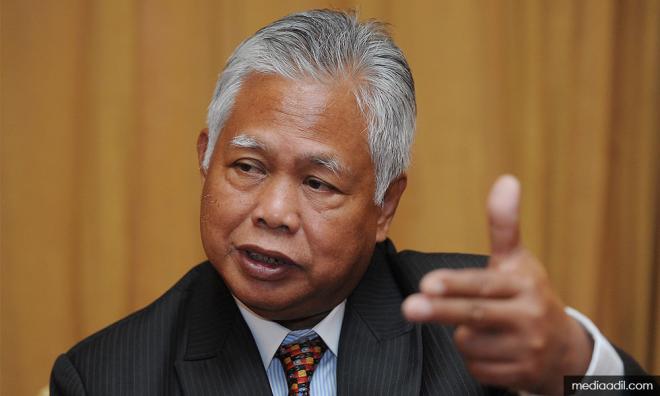
The Malaysian Employers Federation (MEF) today insisted that the government should bear the estimated costs of over RM1 billion to perform a mandatory Covid-19 screening on all foreign workers in the country.
MEF president Shamsuddin Bardan said it would be unfair to expect employers to foot the bill, particularly as it was the government's decision and businesses have just resumed operations following the enforcement of the conditional movement control order (MCO) which began yesterday.
"We object to the decision. At this time, most companies are facing cash flow issues.
"To expect companies to bear the costs, it would be very difficult to meet that demand," he told Malaysiakini.
Rather than imposing on employers to pay for their foreign workers’ screenings, Shamsuddin pointed to the ongoing Social Security Organisation (Socso) Prihatin Screening Programme (PSP Perkeso) for employees, including foreign workers, in the sectors allowed to resume operations during the MCO.
"The problem is, we heard that the test kits for the Socso tests have not arrived in Malaysia," he claimed.
Shamsuddin added that most legal workers would already be covered by Socso, after the expiration of their previous insurance scheme under the repealed Workmen Compensation Act.
"Even so, that insurance was only for hospitalisation compensation and not to conduct health screenings," he added.
The Socso screening scheme was first announced on April 27 and the Malaysian Trades Union Congress (MTUC) had at the time reportedly objected to the use of workers' contributions for the purpose, arguing that employers should be held accountable for their demands to resume operations.
Defence Minister Ismail Sabri Yaakob yesterday announced that all foreign workers must undergo Covid-19 screenings, after the discovery of a new infection cluster at a construction site along Jalan Ampang, Kuala Lumpur.
Given the estimated number of over two million legal foreign workers in present employment, Shamsuddin said it would be a logistical nightmare to complete the process, even at maximum daily testing capacities across all 48 laboratories.
"What is the point of doing testing in green states like Perlis or Penang?
"Also with the two-week cycle of symptoms, what's the point of doing the tests? They can be tested negative once but get infected at a later time," he argued, noting that there was also a larger unaddressed issue of testing undocumented migrant workers.
Shamsuddin added that the MEF had written a letter to Prime Minister Muhyiddin Yassin today to record their objections against the decision.
When contacted, migrant rights group North South Initiative director Adrian Pereira said while he welcomed the government's efforts to control the pandemic, the National Security Council's directive appears to contradict the Health Ministry's targeted screening approach.
"My other worry is the betrayal of using data collected from workers to later conduct (immigration) raids.
"Why did we lie to them by promising them it would be safe to come forward (for screenings) and then do massive raids?" he said in reference to recent crackdowns on undocumented migrants at the Masjid India enhanced MCO area.
SME Association of Malaysia president Michael Kang had previously revealed a larger percentage of foreign workers employed by local small and medium-sized enterprises were hired without a formal employment contract or only paid a daily wage.
He said the legal foreign workers made up approximately 15 percent of the SME workforce, while the remaining were considered as "illegal" or irregular workers. - Mkini



No comments:
Post a Comment
Note: Only a member of this blog may post a comment.